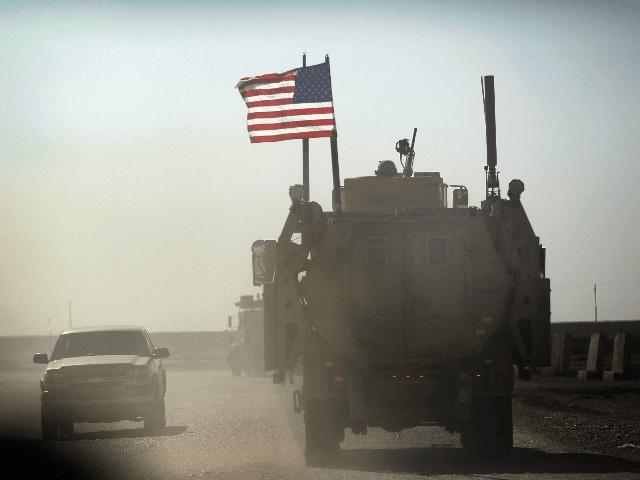Iraq Backs Away from Threats to Expel U.S. Troops
Post# of 65629

< >

Iraqi officials on Monday backed away from their threat to expel U.S. troops following the killing of Iranian terrorist mastermind Gen. Qasem Soleimani and some important Iraqi Shiite militia leaders.
The tone in Baghdad appears to have changed after U.S. President Donald Trump threatened sanctions against Iraq and a draft letter announcing complete U.S. withdrawal of forces accidentally leaked.
“The U.S. president’s threats to impose sanctions on Iraq that will ‘make Iranian sanctions seem somewhat tame’ led some Iraqi MPs to urge a softening of the parliament’s position. One Iraqi MP said Trump’s unpredictability made such a move risky when US air support in particular might still be needed to prevent a resurgence of Islamic State,” the UK Guardian reported.
This led to (theoretically former, but still acting) Iraqi Prime Minister Adel Abdul-Mahdi walking back his demand for “urgent measures” to expel American forces. On Monday, his office released a statement stressing “the importance of mutual cooperation on implementing the withdrawal of foreign troops, in line with the Iraqi parliament’s resolution, and to set relations with the United States on a proper foundation.”
Abdul-Mahdi’s statement also emphasized “how dangerous the situation is right now and its potential consequences” and declared Iraq will do all it can to “prevent the descent into open war.”
A spokesman for Abdul-Mahdi said on Monday that Iraq might demand the removal of American combat forces but not “training and logistical support for the Iraqi military.”
President Trump is unlikely to accept the offer, saying on Monday that if the U.S. leaves Iraq, “we won’t do it on a very friendly basis.”
“We will charge them sanctions like they’ve never seen before, ever. We have a very extraordinarily expensive airbase that’s there. It cost billions of dollars to build. Long before my time. We’re not leaving unless they pay us back for it,” Trump said.
European nations began moving their forces out of Iraqi bases on Tuesday, ostensibly while their commitments to train Iraqi troops were renegotiated with either Abdul-Mahdi’s administration or whatever comes after him, assuming he is ever replaced following his resignation at the end of November.
“Our soldiers are staying in the region and the mission is being kept in place for now, even though it is suspended this week pending further consultation,” said German lawmaker Roderich Kiesewetter, after receiving a briefing on his government’s plans to relocate 35 of its 120 troops in Iraq to alternate locations in Jordan and Kuwait.
Fox News reported the U.K. moved about 50 of its personnel out of Baghdad’s “Green Zone” to other locations in Iraq or out of the country, while Croatia moved its 14 troops to Kuwait, and Slovakia pulled seven of its soldiers out of Iraq, leaving six in the Kurdistan regional capital of Erbil. Finland and Sweden have also indicated they are considering troop movements.
The United States has about 5,000 troops in Iraq. Secretary of Defense Mark Esper said on Monday that some of them will be repositioned within Iraq, but there are currently no active plans to remove them from the country, contrary to the release of a draft letter to the Iraqi government that said all U.S. troops would soon withdraw. The exposure of the letter, which Joint Chiefs chairman Gen. Mark Milley described as “poorly worded,” has been treated as an embarrassing mistake, but might also have rattled some officials in Baghdad.
Al-Jazeera on Tuesday quoted various Iraqi skeptics who thought the Iraqi parliament’s nonbinding resolution demanding an American exit was a stunt they did not expect to be taken seriously – intended primarily to pacify Iraqis who were angry about the Soleimani strike or signal to Iran that Baghdad did not approve Soleimani’s killing – but neither Washington nor Baghdad really wants American troops to withdraw.
Some other skeptics who spoke to al-Jazeera wondered if Washington secretly does want to pull troops out of Iraq, now that the Islamic State has been largely defeated, and would be pleased with a request from the Iraqi government to depart.
 (0)
(0) (0)
(0)